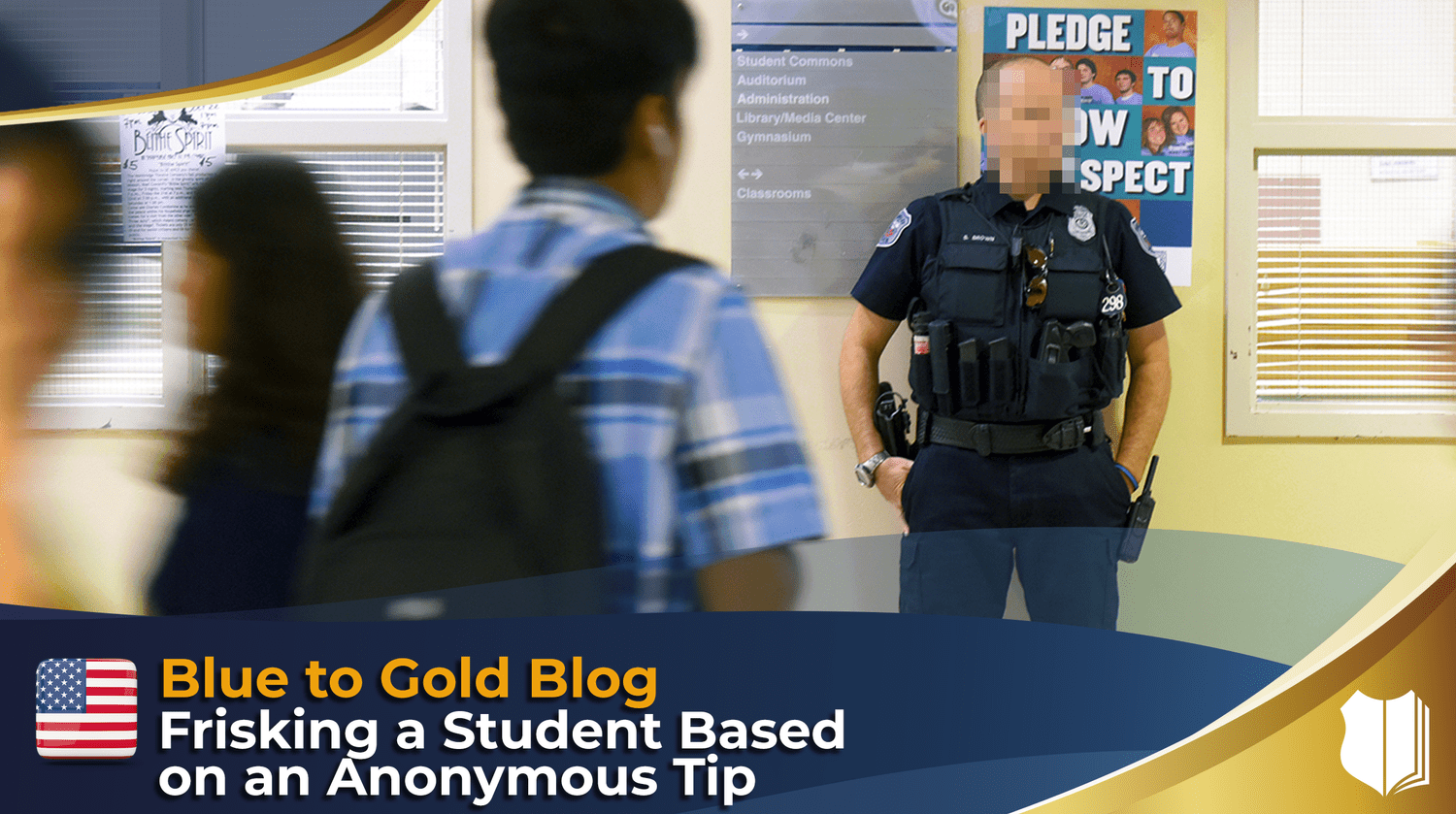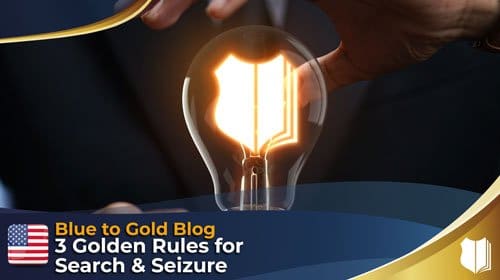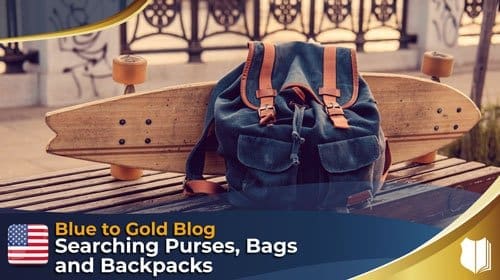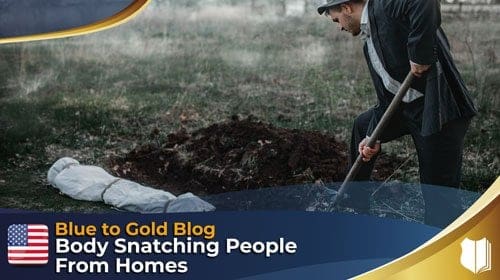

What is the Motor Vehicle Exception?
The automobile, or motor vehicle exception allows officers to search cars for evidence, contraband, and fruits or instrumentalities of crimes without a search warrant. When
or use our live chat
Customer Service


The question is: “Which Fourth Amendment exception allows a school police officer to search a juvenile on campus based on an anonymous tip that the juvenile has a gun?”
Alright, so we’re dealing with a lot of different things here. Let’s walk through it. First off, is the tip truly anonymous? In this day and age, people call it on cell phones. Can that be tracked back to a subscriber? Or is this a situation where the caller is using a burner phone or is using Voice over Internet? Or somebody tells somebody else who tells another somebody and we can’t find that originally reporting party.
If the person is an anonymous reporting party, then the controlling case is going to be Florida versus JL. In Florida versus JL, an anonymous person called in and said, “Hey, there’s a subject at a bus stop wearing a plaid shirt and he’s got a gun. He’s carrying a weapon illegally.” Officers responded and without any kind of independent corroboration, they frisked him they found a gun. The court said this kind of bare bones tip was insufficient to constitute reasonable suspicion.
Terry v. Ohio tells us if we’re going to frisk somebody, we need specific articulable facts to believe that the person is armed and dangerous, more than a mere hunch. And in Florida v JL, the court said that they did not have just that bare bones. “There’s a guy at a bus stop wearing a plaid shirt and he’s got a gun,” is not a basis to frisk somebody.
Now, I want you to compare that case to an Arizona case called In re Roy L. In that case, the SRO received a call with a description, that a subject on the quad had a firearm. The officer went out and he observed the subject, The subject was wearing baggy clothes which based on the officers training and experience was suspicious. People wear baggy clothes when they’re carrying firearms to prevent bulging. He saw the subject, the subject saw him, and the subject immediately began evading him. He engaged in evasive maneuvers, he bladed away from him and his hand hovered over his waistband. Now in that case, the Arizona Supreme Court said that that was sufficient basis to constitute reasonable suspicion. So change the facts change the answer. We’ve got independent corroboration. In Florida v JL, there was no independent corroboration.
Now, in addition, when we’re talking about SROs, things get a little bit more difficult. Safford Unified School District Number One versus Redding is a United States Supreme Court case. In that case, it says that if a school official is performing the search, then there only needs to be a moderate chance of finding evidence.
New Jersey v TLO is another United States Supreme Court case. And basically what that says is that school officials require reasonable suspicion before searching. So the question: “Is the SRO acting on behalf of the school as a school official?” In that case, reasonable suspicion for a search is required. Or is the SRO acting as a police officer for the purpose of following up on a criminal investigation? Now, when we’re talking about guns, chances are the SRO is going to be a police officer and not a school official, right? Regardless, we’re talking about a frisk, a patdown of the external clothing to determine if the person is armed and dangerous. And so you need reasonable suspicion, right? You can also frisk that backpack, as long as you have specific articulable facts to believe the person is armed and dangerous.
Terry v. Ohio, the Terry Frisk is going to be the recognized exception under which you are operating as an SRO, to frisk a subject as long as you have more than a mere hunch, more than a basic bare bones hunch that the person is armed and dangerous. Articulate that reasonable suspicion to believe the person is armed and dangerous. Take that anonymous tip and corroborate it in some regard. Get your reasons sufficiently justified and in addition, never forget the golden rules.
The court is going to weigh the governmental interest versus the level of intrusion on an individual’s rights, and in this case, we have a significant governmental and societal interest in preventing mass killings, mass murders at schools, versus, the minimal intrusion that a Terry frisk represents. Always keep that in mind.
It’s a great question. I highly recommend that you check out Nevada’s search and seizure Survival Guide, or the National Search and Seizure Survival Guide. Check bluetogold.com/store as it has all of our books on it, State-specific volumes or the National Book. It includes answers just like this, and many, many more.
If you guys have any other questions for us, send them to us at bluetogold.com/show. We’ll get your questions answered.
We’ll do what we can to help make sure you get it right every time.


The automobile, or motor vehicle exception allows officers to search cars for evidence, contraband, and fruits or instrumentalities of crimes without a search warrant. When


These three golden rules come from reading thousands of court cases over the last 20 years and seeing a theme regarding what the courts are


This question is: Can you look inside a woman’s purse, or a man’s backpack during a pat down? The answer is, “Maybe.” Here’s how this


Here is the question: Can an officer reach slightly into a person’s home to pull them out and arrest them? If an officer has probable
© Blue to Gold, LLC. All rights reserved